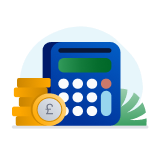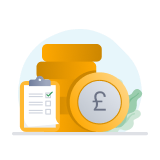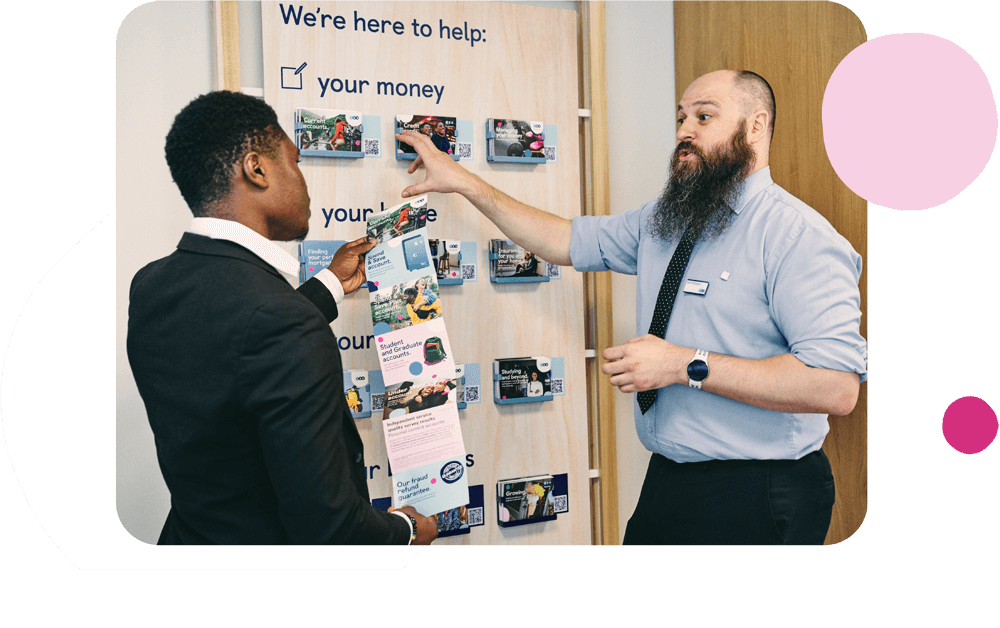Together we can end domestic abuse.

Freelancers and Contractors: Managing Your Money When Paydays and Pay Amounts Vary
Working for yourself can be extremely rewarding. You set your hours. You choose your projects. And no one tells you when to take a tea break. But when you don’t have a regular income, managing your money can be challenging.
Whether you’re just starting out or have been freelancing for years, you’re not alone. Lots of self-employed people find it tricky to budget when their income changes from month to month or job to job.
That’s why we’ve created this guide – full of simple tips to help you feel more in control of your finances, and more confident about managing your money.
And if you run your business through TSB, our business bank accounts and tools can help you keep things organised.

Understanding the challenges of irregular paydays
Being a freelancer or contractor often means working with income that’s unpredictable. Some months, you’re busy and cash is flowing. Other times, work could slow down or payments take longer than expected.
This can lead to:
- Trouble creating a consistent budget
- Worry about paying your bills on time
- Feeling like you can’t plan for the future
It’s hard to stay in control when your income isn’t steady. But this isn’t a personal failing! With a few practical steps, you can take charge of your money and build confidence in your finances.

How to manage your finances as a freelancer
Here are 5 tips to help you stay on top of your contractor finances and get paid on time – whether you’re dealing with long project cycles, last minute jobs, or anything in between.
1. Get to know your money flow
Start by looking back over the past 6 12 months. Even though your income may vary, you might spot patterns or averages. And if you’ve just started freelancing, use your expected rates or early invoices as a guide to estimate your income while things get established.
It helps to:
- Work out your average monthly income
- Plan based on your lowest earning month
- Split your income as it comes in – into tax, bills, and savings
Using a separate business account – like a business bank accounts – can help keep everything organised whether you’re looking to start, run, or grow your business we’ve got the tools and support to help you every step of the way.
2. Build a flexible budget
Your income might change. But your bills don’t.
Here’s how to budget when things aren’t consistent:
- Begin with fixed costs – rent, bills, food
- Put aside a portion for tax and emergencies
- Treat savings as a regular expense
It’s not about restricting your spending. It’s about giving you peace of mind.
You can explore more in our budget planning guide.
3. Smooth your income stream
One of the biggest freelance challenges is late or uneven payments. So how do you keep things steady?
Try these ideas:
- Set clear payment terms in your quotes so work is clearly broken down
- Use invoicing tools to chase payments automatically. And if you don’t want to spend on tools, simple options like spreadsheets or free budgeting apps can still help you stay organised and on top of your money.
- Set a monthly "safety number" you aim to hit
We’ve got more tips on how to get paid on time.
4. Don’t forget about tax and business expenses
Tax can sneak up on you if you’re not prepared. To avoid surprises:
- Set aside around 25-30% of your income for tax
- Keep an eye on key dates like Self Assessment deadlines
- Use a separate business account to track income and outgoings
- Keep receipts for business tools, travel, and insurance
Some of these costs won’t apply to everyone – you might work from home or on site with a client. But it’s good to know what to look out for. Learn more about getting to grips with tax.
5. Build a buffer: Why savings matter when you freelance
Freelancers often experience feast and famine cycles. That’s why it helps to build a savings buffer.
Even saving a small amount regularly can help. Try to aim for:
- 1-2 months of essential living expenses
- Using savings pots or round ups to make saving easier
It’s not about putting away loads right away. It’s about making steady progress over time.
Find out more about our business savings accounts, we’ve also got simple tools to help in our guide on how to get started with saving.
Final Thoughts


Managing your freelance finances can be empowering. With the right systems and support, you can feel confident and in control – even when your paydays and pay amount fluctuate.
And if you ever need a hand, TSB is here to support small business owners. We’re always happy to help and support or you can get in touch.
18+ and UK-based businesses only. £5 monthly fee and other charges apply.
Speak to a Money Confidence Expert
Whether you bank with us or not, we’re here to make banking better for everybody. Our goal is to help you get more from your money. And chatting to us is completely free.

